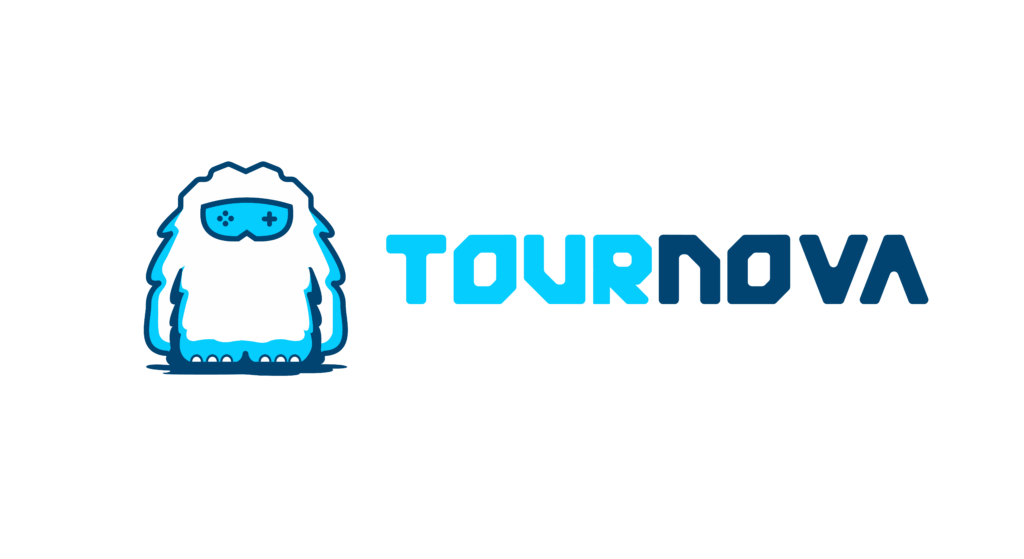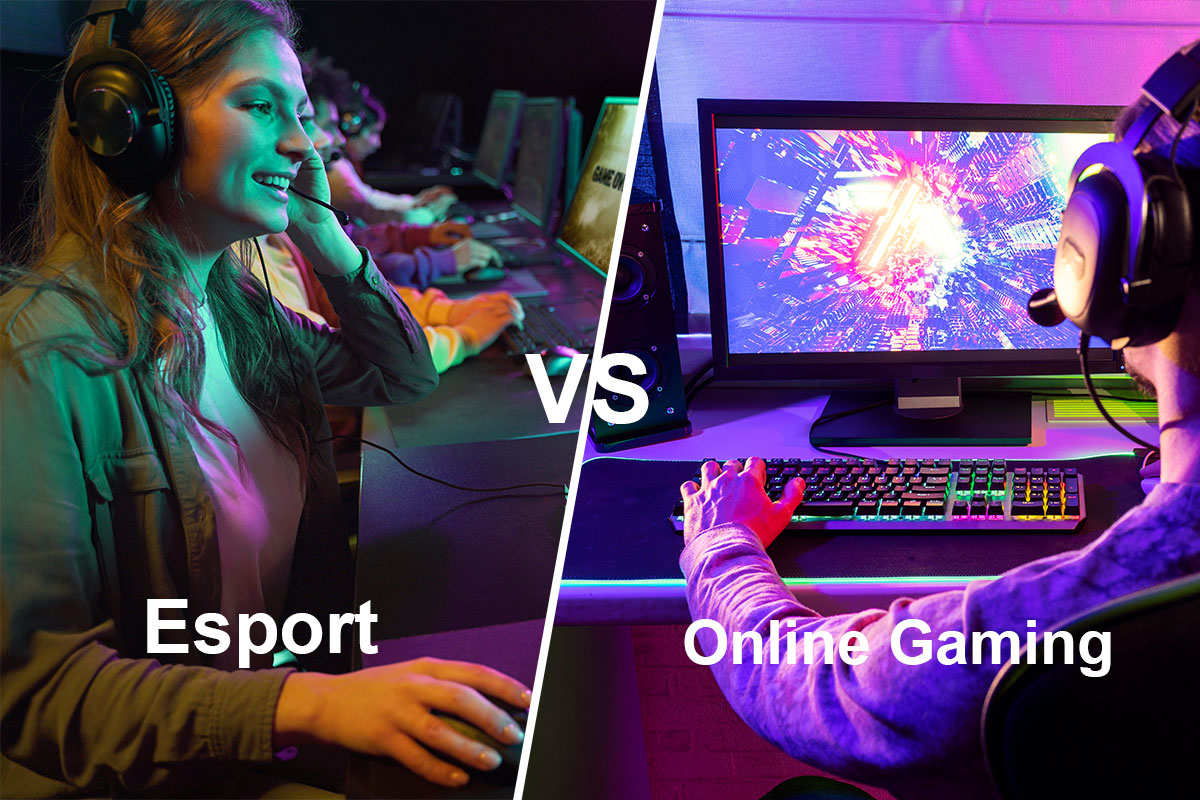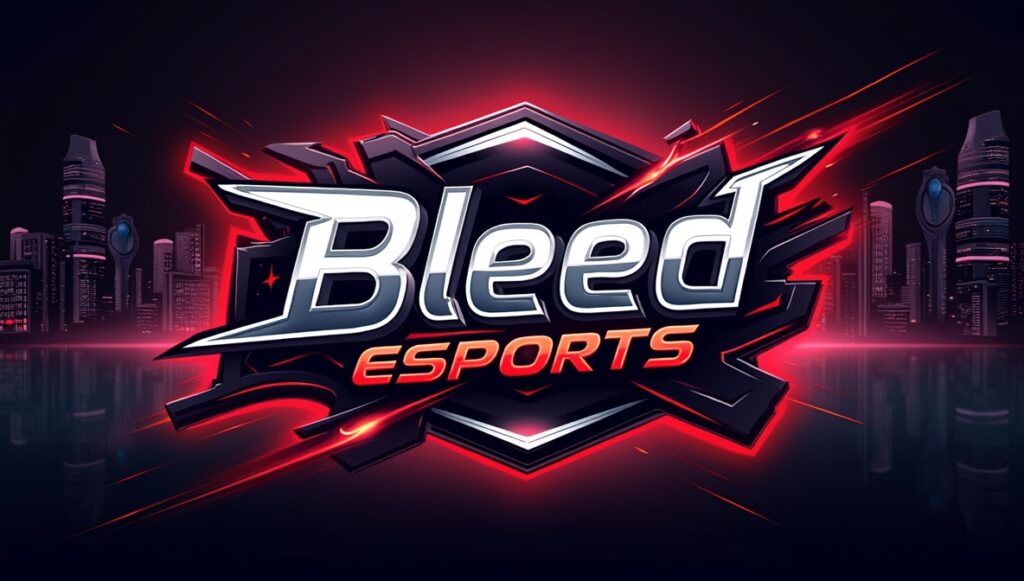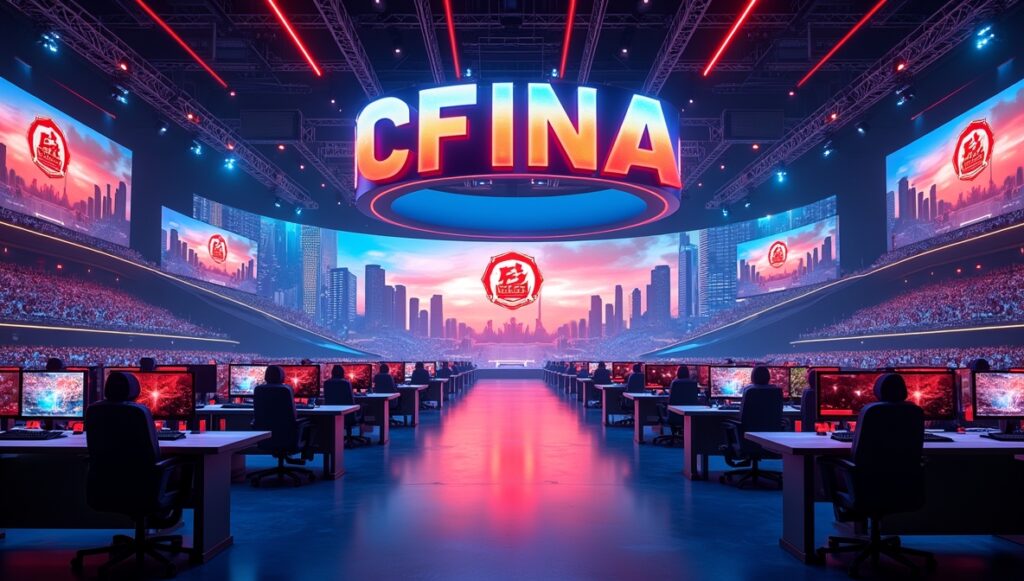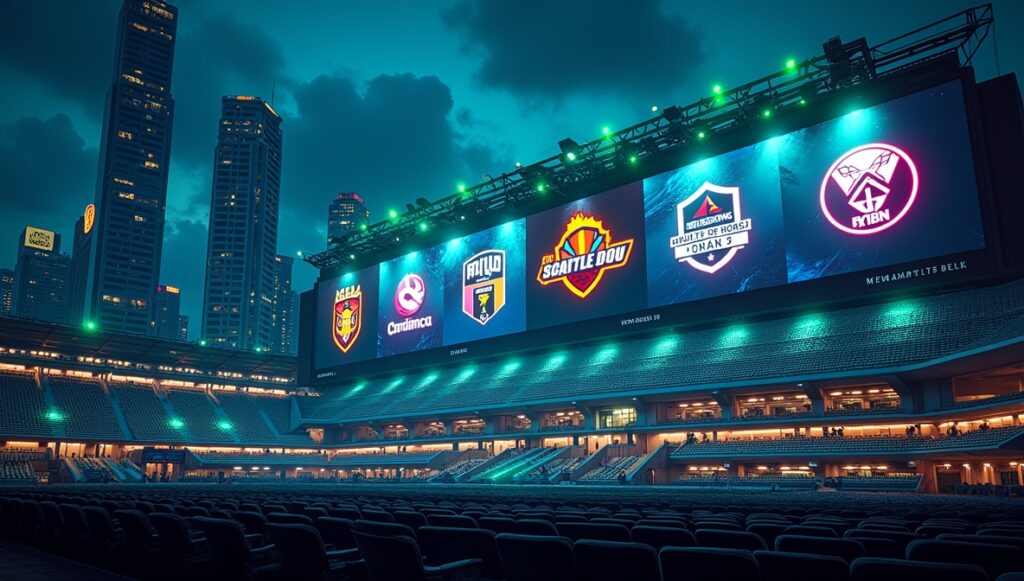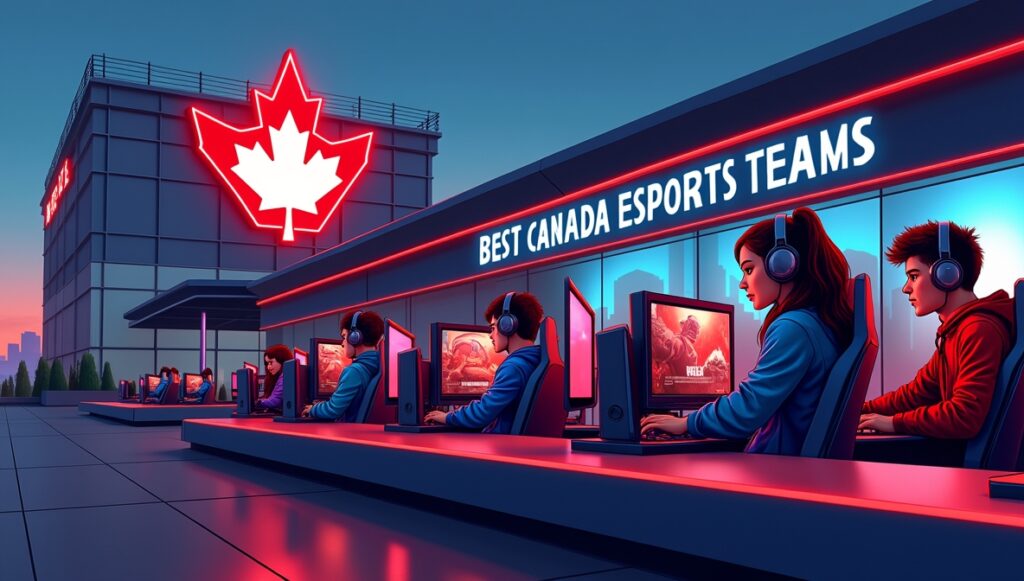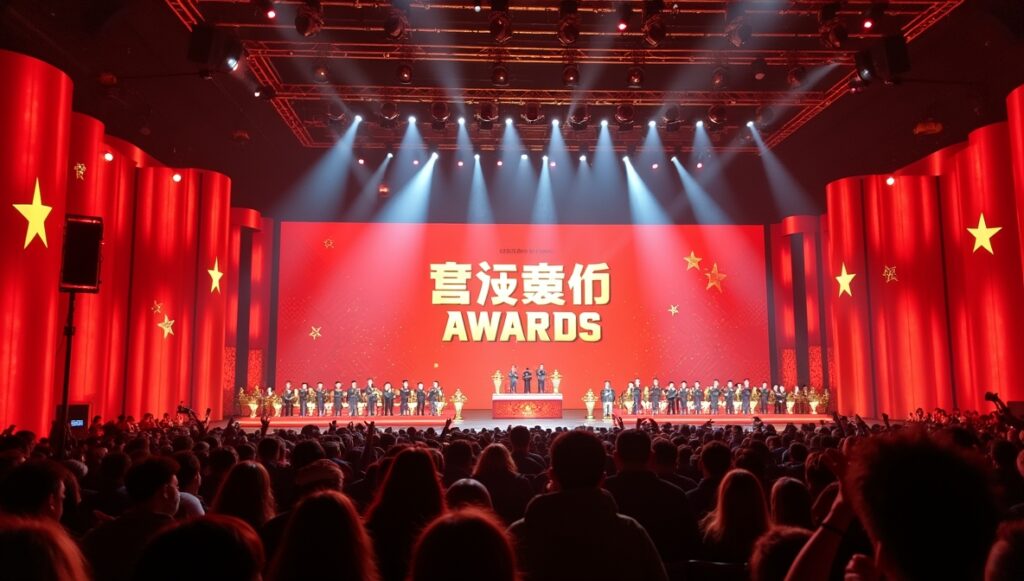When it comes to technological advancements and entertainment, two important phrases to note are esports and online gaming, always putting gamer folk in a frenzy. We heard of them and then, we found ourselves comparing Esports vs gaming. In our minds, gaming is categorized as a break from work and imposed family reunions, whereas Esports may be a bit outside of our comfort zone. Gaming alone doesn’t normally pay, but pro gaming and competing at Esports events may make it worth our while, despite all the practice and concentration required.

Esports vs Gaming: What’s the Difference?
For many of us, gaming is an enjoyable pastime—a chance to immerse oneself in something other than the world we live in. Casual gaming is all about enjoyment and relaxation, whether you’re solving puzzles in “Candy Crush” or exploring vast landscapes in “The Legend of Zelda: Breath of the Wild.” They are mass or group activities that are created and participated in by friends and families with the main purpose of enjoyment. There is no stress, no striving to be a star; it’s about the process and not the goal.
Lastly, they contrast those esports that turn a game into a sport, with players, managers, training, and strict schedules. Games like “League of Legends,” “Dota 2,” and “Counter-Strike: More open-ended “Global Offensive” type games dominate the eSport scene asاwould-be-professionals get attracted to an ambition to play in the top leagues. Those are not only game enthusiasts but athletes who invest a lot of time to improve and develop responsiveness and understanding.
🎮🤖 Esports is a competitive play in which each gamer represents a team fighting for the win and those attractive high-value cash sums.
Key Factors That Set Esports Apart from Online Gaming
Competition Structure and Structured competition
It has closely planned competitions and decipherable tournaments, and therefore, anyone considering it as a sport is accurate. These are set events, so to speak, and very structured and orderly events with lots of rules governing the playing of the games. From a local qualifier to an international championship, there is always a lot of hard work; sometimes, it is a worthwhile experience. Esports is different from gaming in terms of Esports vs gaming in the fact that it entails competition on an international level.
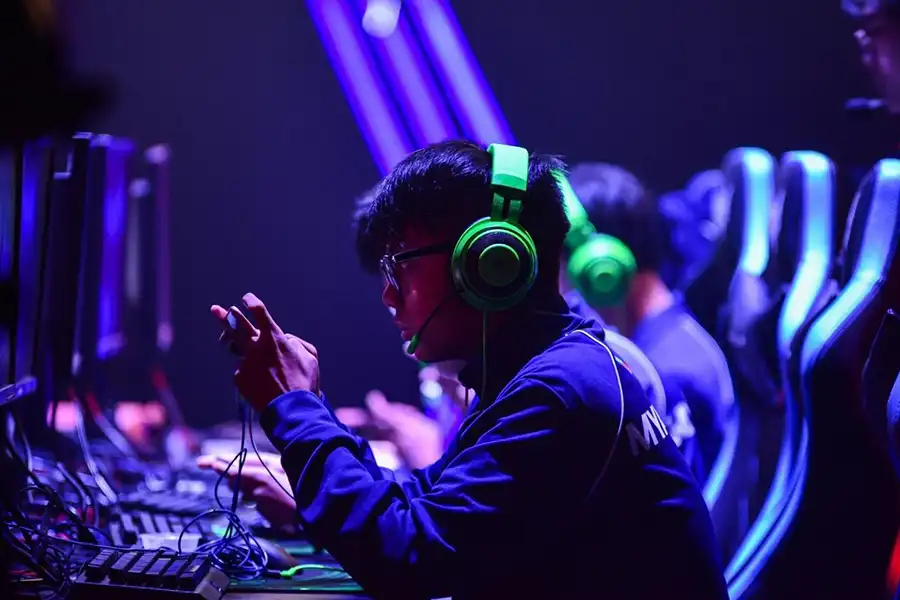
Read More: How Hard Is It to Enter Esports?
Professional Players and Teams
In esports, players often join professional teams, working together to develop strategies and improve their gameplay. The camaraderie and teamwork in esports are akin to traditional sports, fostering a sense of unity and shared purpose. These teams are supported by coaches, analysts, and sponsors, creating an environment where players can focus solely on their performance.
Prize Pools and Sponsorships
One of the most striking differences between esports and casual gaming is the financial aspect. Esports tournaments boast impressive prize pools, sometimes reaching millions of dollars. Sponsorships from major brands further enhance the allure, providing players with opportunities to earn a living through their passion. This financial backing elevates esports to a professional level, attracting top talent from around the world.
Broadcasting and Global Viewership
Esports has a global audience discussing Esports vs gaming, with matches broadcast live to millions of fans. Platforms like Twitch and YouTube Gaming have revolutionized how we consume esports content, offering real-time streaming and interactive experiences. This widespread viewership has turned esports into a cultural phenomenon, bridging the gap between gaming and mainstream entertainment.
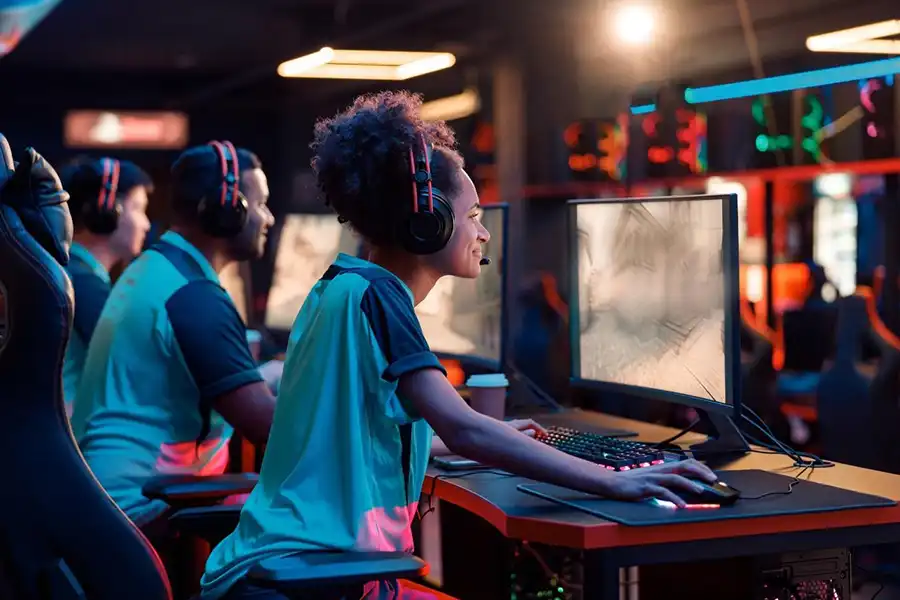
The Role of Technology in Both Esports and Gaming
Advancements in technology have played a pivotal role in shaping both casual gaming and competitive esports. High-speed internet, powerful gaming consoles, and sophisticated graphics have enhanced the gaming experience, making it more immersive and accessible. In esports, technology enables real-time data analysis, allowing teams to refine their strategies and improve performance. As technology continues to evolve, it will undoubtedly drive further innovation in both realms.
Evolution of Esports and Gaming
While reading the article, it is important to trace the evolution from entertainment that snowballed into an international esports industry. Originally, gaming was focused and was limited to one player versus the other against the computer. Nonetheless, the arrival of the internet brought a social aspect to it and led to the creation of online mode, multiplayer games. When competitive gaming became popular, the first events with prizes started to appear and attract enthusiasts. Esports is now a billion-dollar business that has been around for decades, and it continues to grow.
How Social Are We? A Look at Gaming and Esports
Building Communities Through Gaming
Another interesting thing that is inherent in both casual gaming and esports is the construction of communities within considering Esports vs gaming. Social gaming, in particular, can be defined as a type of gaming with a social context, as gamers’ goal is to share some fine moments with friends and families. ‘Animal Crossing’ and ‘Minecraft’ have become places that people visit, much like they go to a park to meet friends if they can’t do so face-to-face due to restrictions. These games develop a friendly atmosphere, which means a social and creative identity for the players.
Esports: A Global Community
Esports, on the other hand, has endeavored thus to cultivate a fan base that can be said to be global. The supporters have cross-sectional origination, and the popular culture aspect comes with fan groups from various world locales. Readily accessible through social networking, blogging, newsgroup websites, and live streaming, fans get a get-together place to discuss issues that significantly affect their sense of community. Like any other traditional sports event, majors like TI for Dota 2 or the LoL World Championship are followed by fan conventions and streaming parties.
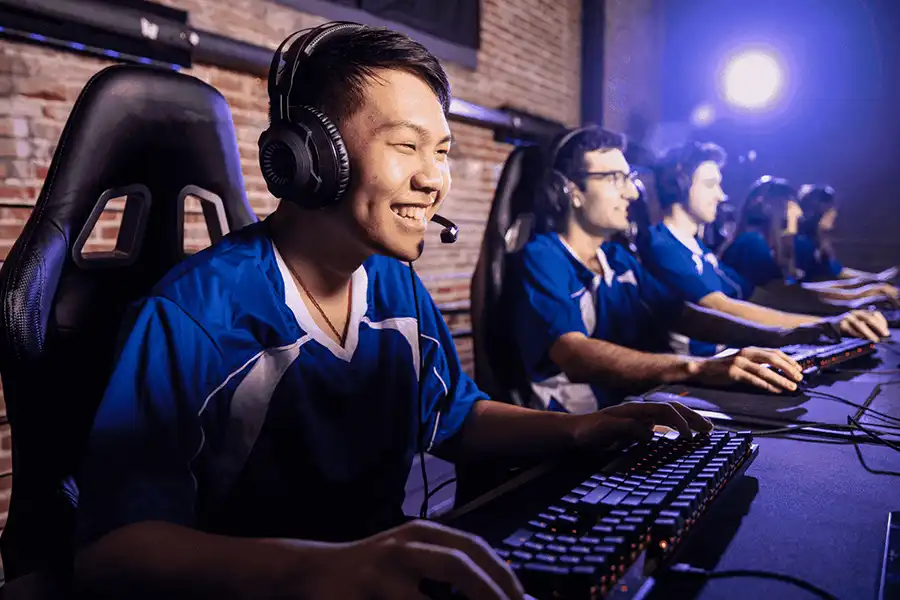
The Economic Impact of Esports and Gaming
The economic impact of esports is significant, with the industry generating billions of dollars annually. In 2023, the esports market was valued at around $2 billion, and it’s estimated to surge to $13.7 billion by 2032, reflecting a robust CAGR of 23.7% during that period.
This growth is driven by various revenue streams, including sponsorships, advertising, media rights, and merchandise sales. The increasing popularity of esports has attracted investments from major corporations and celebrities, further fueling its expansion. This economic boom has created numerous job opportunities for players and coaches, analysts, event organizers, and content creators.
While esports often grabs headlines with its massive prize pools and sponsorship deals, casual gaming also plays a crucial role in the economy when it comes to Esports vs gaming. The mobile gaming sector, in particular, has seen exponential growth, with games like “Candy Crush” and “Clash of Clans” generating substantial revenue through in-app purchases and advertisements. The accessibility of mobile games has broadened the gaming audience, contributing to the industry’s overall economic impact.
The Psychological Benefits of Gaming
Stress Relief and Cognitive Benefits
Casual gaming is often praised for its ability to provide stress relief and relaxation. Engaging in a game can serve as a mental escape, allowing players to unwind and recharge. Additionally, many games are designed to challenge cognitive skills, such as problem-solving, memory, and strategic thinking. These cognitive benefits can enhance mental agility and improve overall brain function.
The Competitive Edge of Esports
For esports players, the psychological benefits extend beyond stress relief. The competitive nature of esports requires players to develop discipline, focus, and resilience. The pressure of high-stakes competitions can enhance mental toughness and the ability to perform under stress. Moreover, the team-based nature of many esports games fosters communication and collaboration skills, which are valuable in both gaming and real-world scenarios.
🤖🎮Tournova Insight: Not only does competitive gaming provide career opportunities for gamers, but it can also improve concentration, critical thinking, emotional resilience, and strategic planning.
Read More: How Much Do Esports Players Make?
The Future of Gaming and Esports
Technological Innovations on the Horizon
The future of gaming and esports is closely tied to technological advancements. Emerging technologies, such as virtual reality (VR) and augmented reality (AR), promise to revolutionize the gaming experience, offering more immersive and interactive environments. These innovations could blur the lines between gaming and reality, creating new opportunities for both casual gamers and esports professionals.
The Growing Influence of AI and Machine Learning
Artificial intelligence (AI) and machine learning are also set to play a significant role in the evolution of gaming. AI can enhance game design, creating more realistic and adaptive environments that respond to player actions. In esports, AI-driven analytics can provide teams with insights into performance and strategy, helping them gain a competitive edge.
🤖🎮Tournova Insight: Predicting players’ gameplay styles is crucial in high-stakes situations where quick decisions matter. By processing historical data, AI creates detailed scouting reports, aiding teams in their preparation for competitions.

Read More: Top 10 esports games mobile in 2025
Conclusion
In conclusion, the gaming world is vast and diverse, offering something for everyone. Whether you are a casual gamer seeking relaxation or an esports enthusiast chasing glory, the gaming industry continues to evolve and expand, driven by technological innovations and a passionate community. As we look to the future of Esports vs gaming, the possibilities are endless, and the journey is just beginning. Embrace gaming diversity, and discover where your passion can take you.
Read the hottest in-depth Esports Guides on Tournova.
FAQs
How do esports players train for competitions?
Esports players follow rigorous training schedules, including practice matches, strategy sessions, and physical fitness routines to maintain peak performance.
Can casual gamers transition to professional esports?
Yes, many professional players started as casual gamers. With dedication, skill development, and networking, transitioning to esports is possible.
What are the most popular games in esports?
Some of the most popular esports games include “League of Legends,” “Dota 2,” “Counter-Strike: Global Offensive,” and “Fortnite.”
